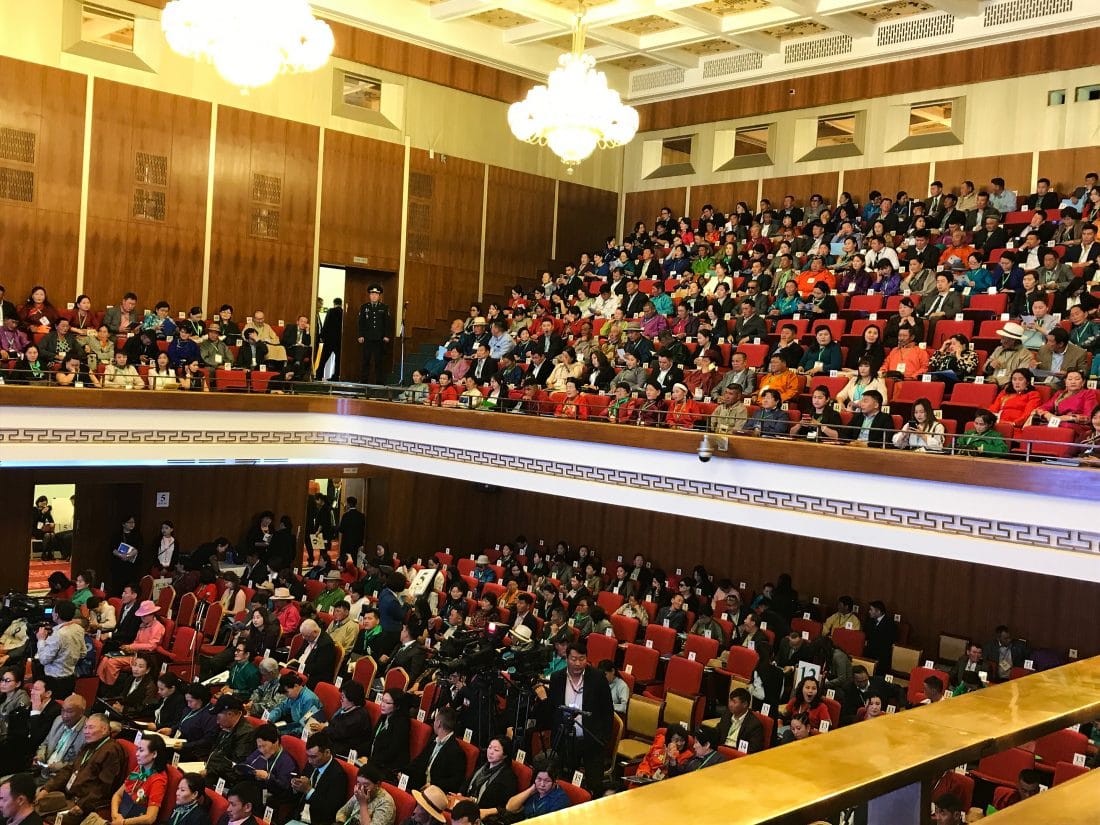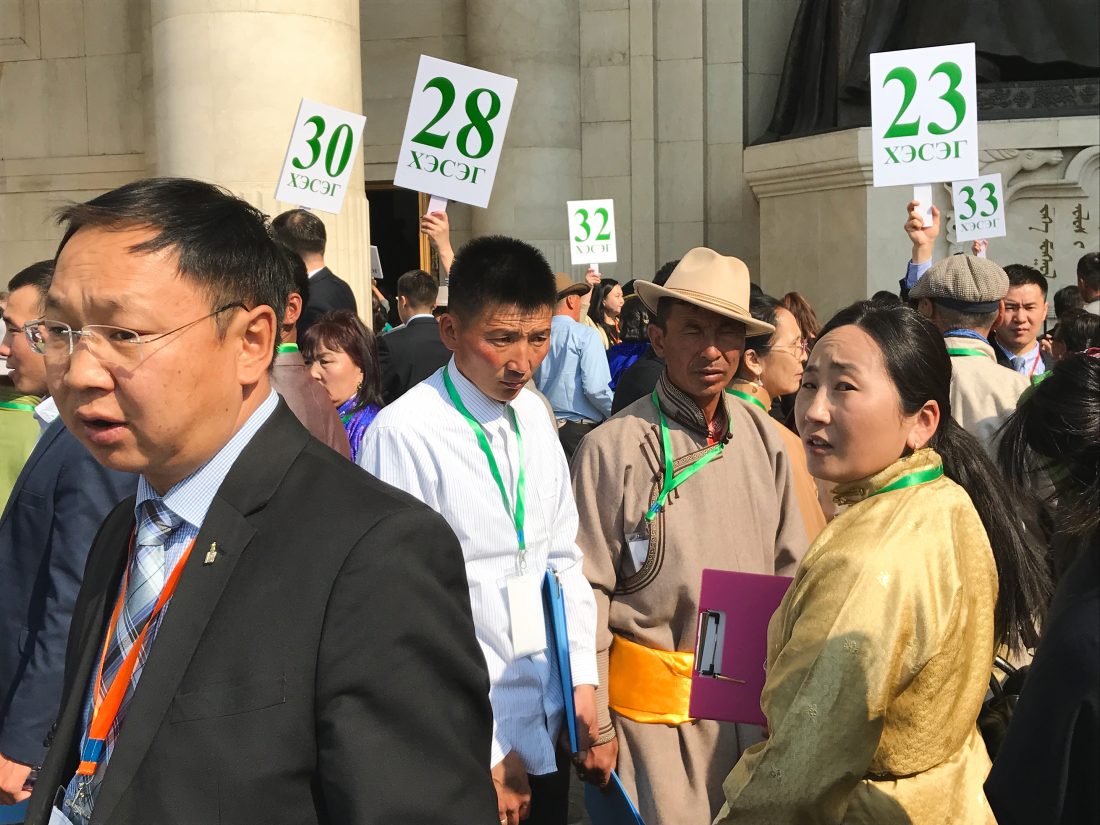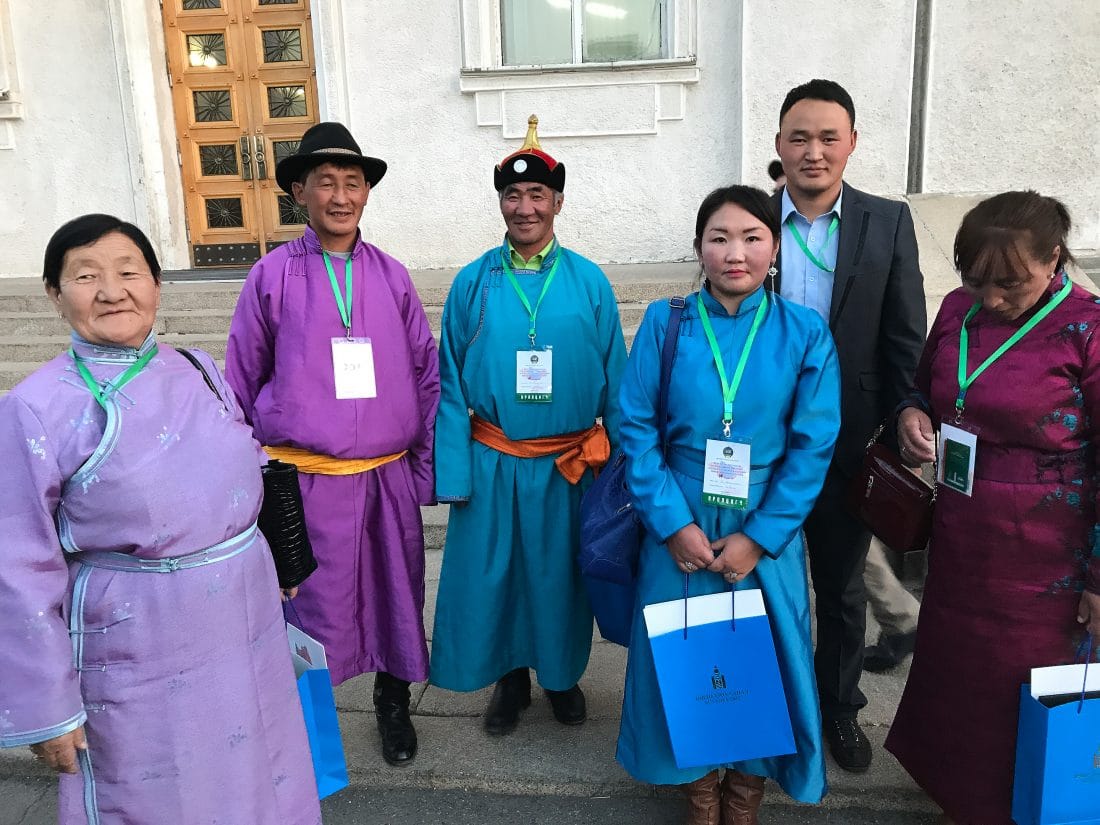Mongolia
Mongolian parliament
On April 29-30, the Mongolian parliament did just that when it brought together 669 randomly selected citizens from across the country to Ulaanbaatar for the first-ever national deliberative poll on the future of the Mongolian constitution. Deliberative polling is an intensive research method that gathers a randomly selected and representative sample, rather than self-selected participants, and provides citizens with information in writing to ensure it is gathering informed opinions. The deliberative poll finishes with each participant taking an opinion survey to determine their views on the topics discussed. These opinions are then collected and help shape the process of constitutional amendment the government will undertake in the coming months.
669 randomly selected citizens from across the country
Experience published in http://asiafoundation.org
Bringing together a representative sample of an entire country in one room is not a simple task, especially in a place like Mongolia, where much of the population lives in small, often isolated communities, spread out over a vast terrain. For many citizens, a trip to the capital city, Ulaanbaatar, means a full day on a bus, often on unpaved and poorly maintained roads. But once the complicated logistics are figured out, the possibilities for dialogue and discussion that such diversity brings to one room is immense.

Plenary sessions provided an opportunity for citizens to hear the arguments in support of and opposed on each issue from independent experts.
On April 29-30, the Mongolian parliament did just that when it brought together 669 randomly selected citizens from across the country to Ulaanbaatar for the first-ever national deliberative poll on the future of the Mongolian constitution. Deliberative polling is an intensive research method that gathers a randomly selected and representative sample, rather than self-selected participants, and provides citizens with information in writing to ensure it is gathering informed opinions. The deliberative poll finishes with each participant taking an opinion survey to determine their views on the topics discussed. These opinions are then collected and help shape the process of constitutional amendment the government will undertake in the coming months.
The two-day event stimulated discussion and gathered citizen input on critical issues ranging from the powers of the president and ensuring the independence of the civil society, to the pressures of urbanization and the frequency of elections.

Citizens in the deliberative poll were organized into 49 small groups of (15 people each) to deliberate on each issue.
Mongolia’s constitution dates to 1992 when the country was just beginning its transition to democracy and a fully market-based economy. While the constitution has provided the foundation for Mongolia to become one of the region’s most robust democracies, in recent years politicization has crept into all levels of government, the independence of the courts and other independent institutions have been called into question, and successive governments have struggled to identify and implement key policies to continue Mongolia’s resource-based growth.
While a long list of such constraints has been raised, consensus on such complicated and contentious issues is extremely difficult to reach, and experts differ widely on which amendments to prioritize and how they should be combined.
The poll comes two months after Mongolia’s government passed a law requiring that the deliberative polling method be conducted before amendments to the constitution could be made. Deliberative polling, pioneered over 30 years ago by the Center for Deliberative Democracy at Stanford University, was first conducted at the Ulaanbaatar city level in 2015 with support from The Asia Foundation and Stanford University. Both Stanford and the Foundation provided capacity building and advisory support for this first national event.
Last weekend’s discourse clearly shows that the government has learned some lessons from the last round of constitutional amendment efforts in 2000, which were viewed negatively throughout the country, in part because they were made quickly and with minimal discussion and debate. In contrast, this event was highly publicized in advance, and the deliberative polling methodology brought clear advantages over other traditional consultation techniques.

Citizens from all walks of like and from every part of Mongolia gathered to participate in this first nation-wide deliberation on constitutional amendments.
Participants from across the country expressed excitement at the prospect of their voices being heard in this amendment process, as well as strong opinions about the wide range of issues being considered. For example, one participant who had journeyed from remote Huvsgal aimag (province) indicated that after the event she had a strong preference to have the power to elect her own local governor, rather than have the governor appointed by the aimag. She believed an elected governor would better understand local issues and concerns.
While the results of the dialogue are still being compiled, and exactly what amendments might result from this process will not be seen for some months, the event clearly shows the intention of the government to invest in citizen participation in the future of the constitution.
To politicians, observers, citizens, and others watching this deliberative event it became apparent that if people think their voice matters in a forum such as this, they will fully engage in fruitful discussion among themselves, ask the experts informed questions, and then make tough decisions on what is best for their communities. While many discussions included surprise and honor at being invited to the deliberation and visiting the Government House, and excitement at meeting people from different provinces, most would quickly, however, shift back to the constitution and how it can support their hopes for the country’s development.
Amarzaya Naran is deputy manager of The Asia Foundation’s Governance Program in Mongolia. Mark Koenig is the Foundation’s deputy director and urban governance specialist based in the Bangkok office. The views and opinions expressed here are those of the individual authors and not those of The Asia Foundation or its funders.